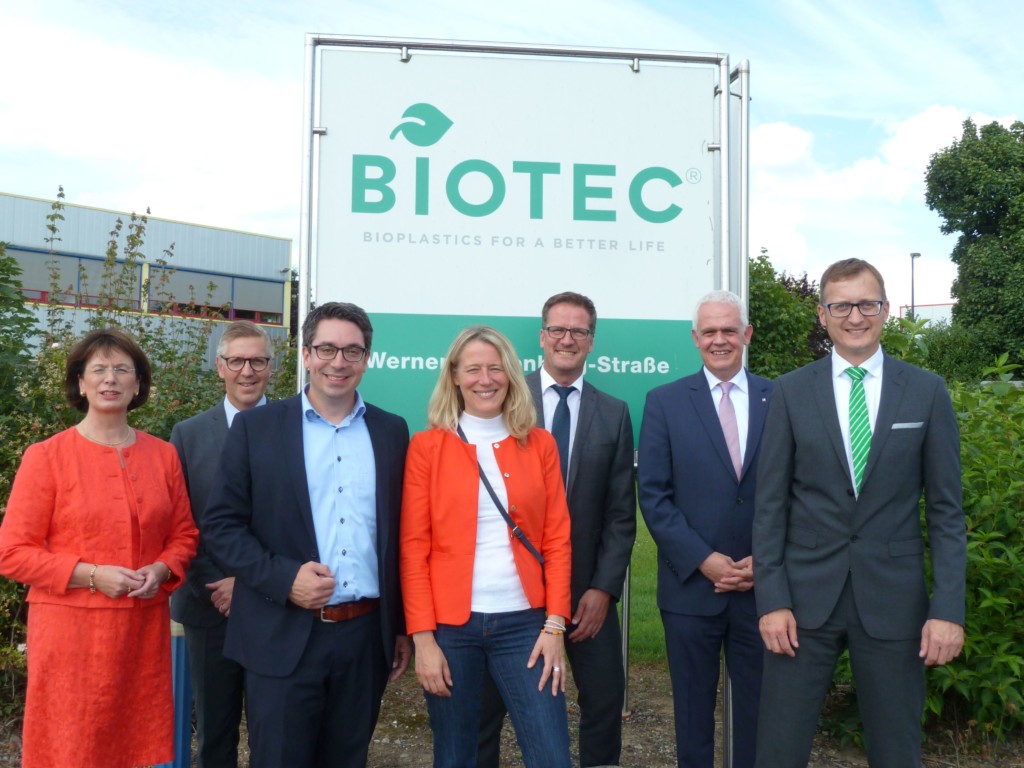Members of the CDU/CSU parliamentary group visited BIOTEC, one of Germany’s leading producers of compostable plastics based in Emmerich on the Rhine, and promised to increase support for innovation and growth in the region’s bioplastics sector.

Marie-Luise Dött (CDU, MdB), Kerstin Radomski (CDU, MdB), Dr Günter Bergman (CDU, MdL), and Stefan Rouenhoff (CDU candidate for the district of Kleve) visited BIOTEC in Emmerich on 31 July 2017. Photo: BIOTEC
Marie-Luise Dött, environmental spokesperson of the CDU/CSU parliamentary group in the German Bundestag, Kerstin Radomski, also a member of the CDU/CSU parliamentary group, Dr Günter Bergman, Member of the Landtag of North Rhine-Westphalia, and Stefan Rouenhoff, CDU candidate for the district of Kleve, met with Peter Brunk, Managing Director of BIOTEC, at the end of July in Emmerich to discuss the chances and challenges for biodegradable and compostable plastics to penetrate the market in Germany and Europe. BIOTEC experienced a substantial growth surge in the past years, due to the increased demand for compostable products in Italy and France.
Workforce increased by 35% – demand for high-skilled personnel
As a consequence, BIOTEC has increased its workforce by 35 percent in recent months and has invested substantially in new production capacities and filling plants. The company currently employs about 50 people. In order to be able to meet the increasing demand for compostable materials in future, BIOTEC has decided to launch its own training program for high-skilled professionals with a focus on chemists and mechatronics.
During their visit, the parliamentarians affirmed their support for the further development and expansion of innovative bioplastics in Germany. One of the main legislative measures to help compostable plastics to establish on the German market is the mandatory separate collection of biowaste introduced in 2015 throughout Germany, and will remain an important waste policy objective for the CDU.
For BIOTEC, the visit of the MPs was a good opportunity not only to promote their own enterprise, but to also rally support for the entire bioplastics industry at federal and provincial level. In particular the need to connect industrial sites in the region to the necessary infrastructure as well as to ensure availability of a high-skilled workforce were discussed in detail in order to allow for the expansion and further development of the bioeconomy in Germany.